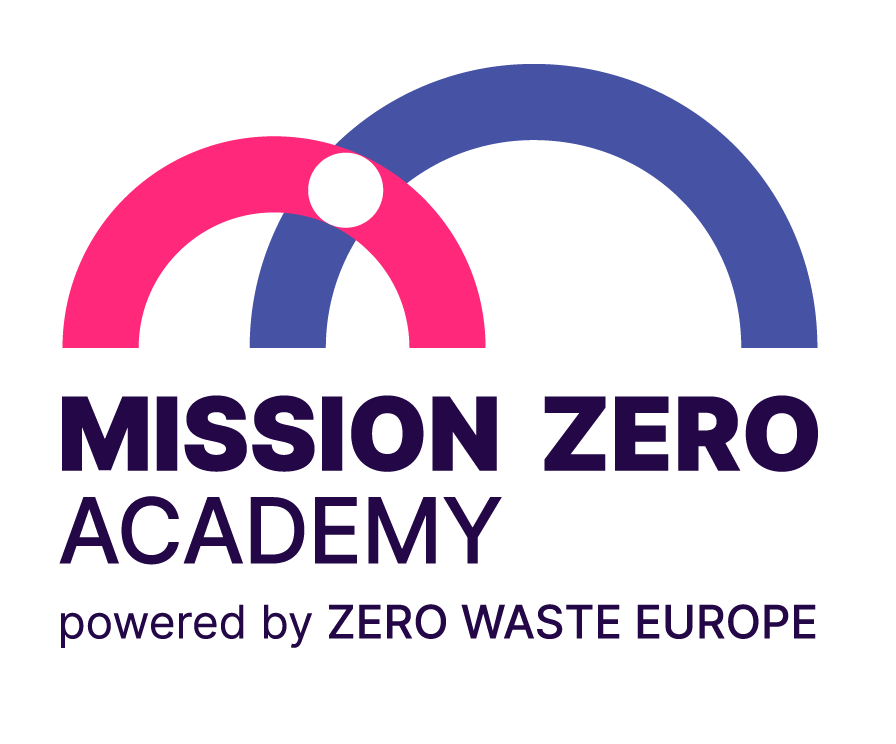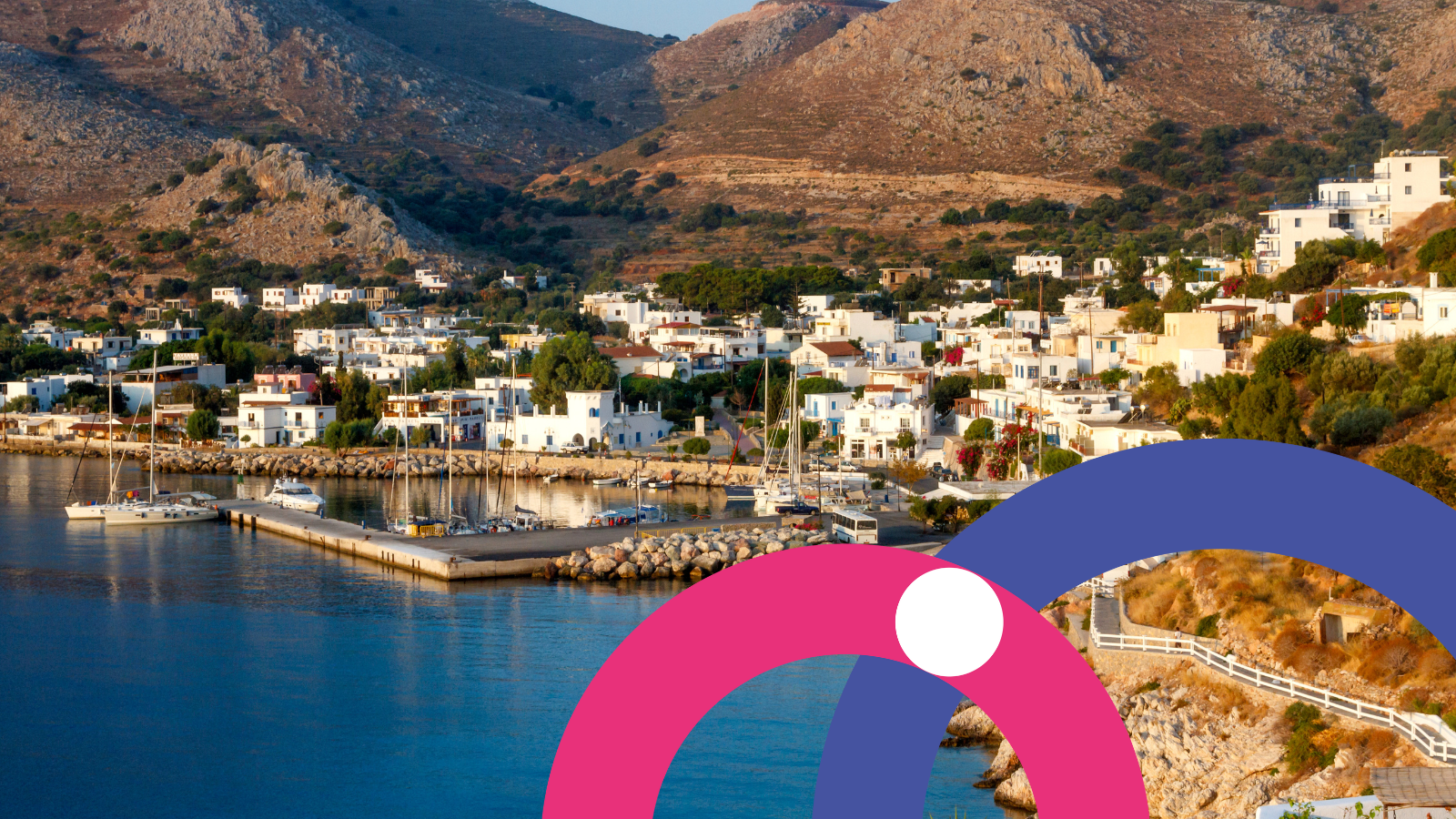Brussels, 6 July 2023 – The island of Tilos has become a Zero Waste Certified City – a first for Greece, and the first island in the world to become accredited.
A small island in the Aegean sea, Tilos officially committed to become zero waste in 2021. With around 500 inhabitants, the island’s economy heavily depends on seasonal tourism, which puts pressure on the island’s waste management facilities.
Maria Kamma, the Mayor of Tilos, highlighted that “the small Aegean island of Tilos has achieved a green revolution beyond comparison.”
Two years prior, Tilos had been sending 87% of their waste to landfill. Having no efficient separate collection system coupled with increasing tourism pressure, the municipality considered increasing their landfill capacity – an unsustainable solution that would lead to increased costs for expansion and day-to-day operation.
The municipality decided to implement the Just Go Zero Tilos project, in collaboration with Polygreen, a waste management company that focuses on green solutions. Started in June 2021, the project has implemented regular door-to-door separate waste collection, diverted all residual waste away from landfill, and permanently shut down all landfill facilities.
“With the collaboration of all households and businesses on the island, the Municipality, the Polygreen network of companies and the Region of South Aegean via its Solid Waste Management Agency,” Kamma stated, Tilos managed to reach one of “the highest percentage worldwide in recycling and composting, which is nearly 90%. Trash bins were eliminated, landfilling no longer exists and the island is Zero Waste. Tilos has become an example for sustainable tourism and growth in the Aegean.”
George Hatzimarkos, the Governor Of South Aegean Islands,Islands and Chairman of the Solid Waste Management Agency of South Aegean states has reinforced Kamma’s point that “what is happening in Tilos is truly a revolution”.
“We do not wait for the future to come,” Hatzimarkos continued, “we plan it in advance and make it happen today, through our actions.”
From 770 kg of municipal solid waste per inhabitant per year being produced before the implementation of the Just Go Zero Tilos project, the municipality’s figure now sits at 440 kg – a 43% reduction. Of this, only 54 kg is considered residual waste.
Achieving 4 out of 5 stars in the Zero Waste Cities Certification, the island’s dedication and willingness to overcome structural problems that affect the whole waste management system was praised by Ismael Casotti, the auditor at ZERO – Associação Sistema Terrestre Sustentável appointed to certify the island.
“Not only being a small island increases the challenges for material delivery and waste shipments,” Casotti said, “but the island is located among the furthest from the capital city, Athens. Nonetheless, the local team and Polygreen have found a solution that should inspire all the other small Mediterranean islands that wish to change the way they collect, separate at source and locally pre-sort all waste flows that appear.”
The island has created a Centre of Circular Innovation where all waste is transported to be sorted and processed. This includes a composting facility to create fertiliser on site and a sorting mechanism of 15 waste streams, including coffee capsules, batteries and textiles. Residual waste is transformed into alternative fuel. This ensures that the waste hierarchy can be followed closely for all material streams.
The Greek zero waste organisation Ecorec, which also mentored Tilos on their journey, welcomed the island as the first certified Zero Waste municipality in Greece. “We salute the efforts made in reaching such impressive results in such a short period of time and will support their next steps in the Zero Waste journey. We look forward to welcoming many more Greek municipalities and islands to the program.”
The Zero Waste Cities Certification is a European certification standard evaluated by third parties. Created by Zero Waste Europe (ZWE), and run by its sister organisation Mission Zero Academy (MiZA), its goal is to accelerate the transition to zero waste and the implementation of the circular economy in European towns and cities, at the local level.
Notes to the Editor
Mission Zero Academy (MiZA): https://www.missionzeroacademy.eu/
Mission Zero Academy’s Zero Waste Cities Certification: https://www.missionzeroacademy.eu/municipalities/zero-waste-cities-certification/
Zero Waste Europe (ZWE) website: https://zerowasteeurope.eu/
The Zero Waste Certification is made up of 5 steps: (i) the expression of interest in being Zero Waste by the municipality, (ii) the acquisition of the commitment to be Zero Waste – candidacy phase, (iii) the implementation of this system, (iv) its certification and (v) the performance of annual improvements. The overcoming of each of these steps is given with the support and advice of expert entities in the fields of waste and resource management. The evaluation for certification is developed around a scoring system, which includes mandatory criteria and optional scoring criteria.
Scoring criteria are scored based on the ambition and impact of each implemented policy. The sum of the points defines the level of certification of the municipality and its subsequent number of ‘stars’.
Subsequent to Certification, municipalities must monitor their activity and make annual improvements to enhance the results achieved. Every 3 years they are subject to new audits.
Do you want to know more about the Certification of Zero Waste Cities and Towns? Discover more details about it here.





